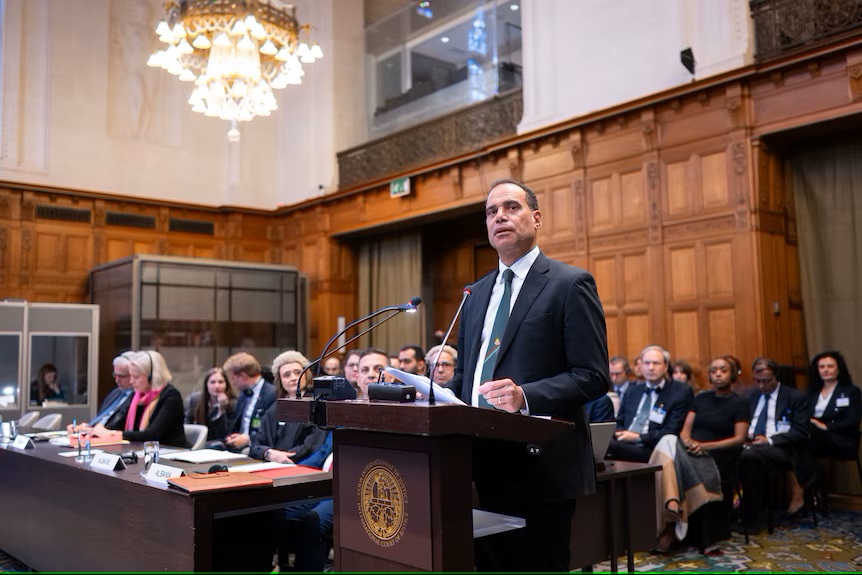Vanuatu’s Special Envoy for Climate Change, Ralph Regenvanu, has slammed Australia, the United States, and other major polluters for their stance during the International Court of Justice (ICJ) climate hearings in The Hague.
Regenvanu accused the nations of hiding behind failed treaties instead of taking meaningful action to curb emissions.
“Today, as sea levels rise and the impacts of climate change intensify, we cannot afford to bury our heads in the sand. Climate change is an existential threat that transcends borders, affecting all nations regardless of political ideology or geographic location.
“Let me be clear: these treaties are essential, but they cannot be a veil for inaction or a substitute for legal accountability. There needs to be an accounting for the failure to curb emissions and the climate change impacts and human rights violation that failure has generated,” said Regenvanu on Wednesday.
Regenvanu expressed particular disappointment with Australia and the U.S, noting their significant greenhouse gas emissions and failure to acknowledge the gravity of the crisis.
“We are obviously disappointed by the statements made by the governments of Australia, the United States, Saudi Arabia, and China during the ICJ proceedings.
These nations, some of the world’s largest greenhouse gas emitters, have pointed to existing treaties and commitments that have regrettably failed to motivate substantial reductions in emissions,” he said.
Vanuatu’s case argues that climate destruction breaches international law, including human rights and environmental obligations.
“It is particularly concerning that some of these nations, upon whom we depend for aid and support, have not acknowledged the severity of the crisis or their responsibilities under international law. Our dependency on their assistance makes it all the more critical for them to act responsibly and in solidarity with vulnerable nations like ours.
“As we have argued before the Court, the conduct responsible for climate change is not just irresponsible—it is unlawful under a range of international obligations, including those under the law of the sea, human rights law, and environmental law. The destruction of Earth’s climate system constitutes an ongoing breach of international law, and it demands immediate legal recognition and cooperative measures to turn the tides, repair the harm, and protect our futures from further destruction,” Regenvanu said.
He urged former colonial powers like France and the UK to support Vanuatu’s push for justice.
“We hold hope that our former colonial powers, including France and the United Kingdom, will recognise the gravity of this moment and support our continued self-determination. Their support in the coming days could significantly affirm their commitment to solidarity, justice, and the rule of law,” he said.
Regenvanu called for urgent action, warning that no country could afford to ignore the crisis.
“Our appeal is to all nations, especially those with the greatest capacity and historical responsibility, to align their actions with the principles of international law and the urgent needs of our shared planet.
“No country can afford to keep its head in the sand any longer. The time for decisive, legally grounded action is now,” Regenvanu said in a statement.














